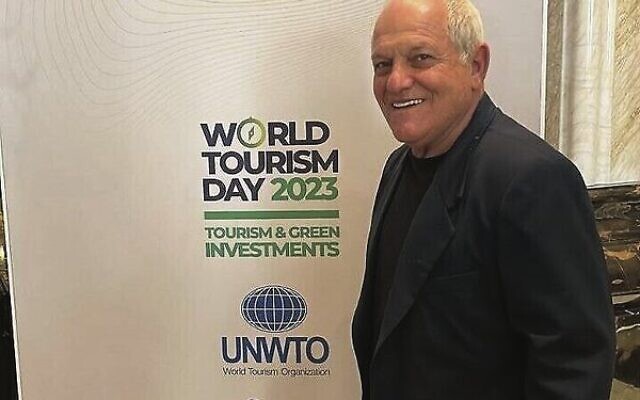Edging closer to normalisation
Israeli Tourism Minister Chaim Katz arrived in Saudi Arabia on Tuesday for a United Nations conference, becoming the first Israeli minister to lead a delegation to the kingdom.

(Times of Israel) – Israeli Tourism Minister Chaim Katz arrived in Saudi Arabia on Tuesday for a United Nations conference, becoming the first Israeli minister to lead a delegation to the kingdom, according to his office.
Katz’s visit comes as Israel and Saudi Arabia seem to edge closer to normalisation, with US President Joe Biden’s administration actively engaging Riyadh and Jerusalem to try to broker a deal.
Last week, Saudi Crown Prince Mohammed bin Salman told Fox News that “every day we get closer” to his country normalising ties with Israel, while clarifying that the Palestinian issue is still a “very important” component of the process. As part of the framework, Saudi Arabia is also asking the US for a major mutual defence pact, significant arms deals and a civilian nuclear program.
Three officials familiar with the matter told The Times of Israel that Saudi Arabia is quietly setting aside the Arab Peace Initiative that it sponsored more than 20 years ago, and is readying for the possibility of normalising relations with Israel without first securing the establishment of a Palestinian state.
Publicly, Saudi officials continue to stress their support for the 2002 initiative, which offers Israel normalised ties with the entire Arab world once it reaches a two-state solution. The framework was again touted by Foreign Minister Faisal bin Farhan’s speech at the UN General Assembly on Saturday and by the kingdom’s ambassador to the Palestinians during his first visit to Ramallah on Tuesday.
Bin Salman appeared close last week to acknowledging that Riyadh is prepared to normalise ties in exchange for concessions that fall short of Palestinian statehood.
“We hope it will reach a place that it will ease the life of the Palestinians,” he said, referring to the talks as an opportunity to boost Palestinians’ livelihood, rather than their political sovereignty.
White House Press Secretary Karine Jean-Pierre similarly refrained from talking about Palestinian statehood as the goal of the talks.
A senior Palestinian official said, “The Saudis have made clear to us that they will not abandon the Palestinian cause, but it’s true that what is being discussed includes elements that are less than statehood. We’re talking about a pathway to getting there.”
Palestinian officials have told The Times of Israel they want an agreement to be conditioned on Israel halting unilateral actions in the West Bank, and the PA is prepared to halt some of its own unilateral actions in exchange.
Israeli actions include settlement construction, military raids in Palestinian cities and settler violence against Palestinians, an official said last Friday, adding that the PA would be prepared to abandon the investigations it is pursuing against Israel in forums such as the International Criminal Court and the International Court of Justice in exchange. It’s not clear, however, whether the already opened probes into Israel can be rolled back at this point.
“There should be mutual obligations,” one Palestinian official said, speaking on condition of anonymity. “We need to see the unilateral steps stop in order to give a political horizon for a future between Israelis and Palestinians. Without one, there’s no telling what could happen tomorrow.”
The fresh details further highlight that Ramallah is willing to be satisfied with far less than statehood, which has long been seen as its condition for backing moves by additional Arab countries to normalise ties with Israel.
Both the US and Saudi Arabia have made clear that Israeli Prime Minister Benjamin Netanyahu will need to offer something significant to the Palestinians in order to get the Saudi deal across the finish line.
But Itamar Ben Gvir, head of Israel’s far-right Oztma Yehudit party, said his party and Religious Zionism, who together hold 14 Knesset seats, would quit Netanyahu’s coalition if widely expected concessions to the Palestinians are made.
“If there will be concessions for the Palestinians, we will not remain in the government – and not just us, but the Religious Zionism party as well. Netanyahu can only make this deal with [Benny] Gantz,” Ben Gvir said in a statement.
National Unity faction chairman Gantz has already ruled out the possibility of joining Netanyahu’s government to ensure a Saudi normalisation deal.
Opposition leader Yair Lapid has warned that an agreement must not enable Riyadh to gain a path to acquiring nuclear weapons.

comments